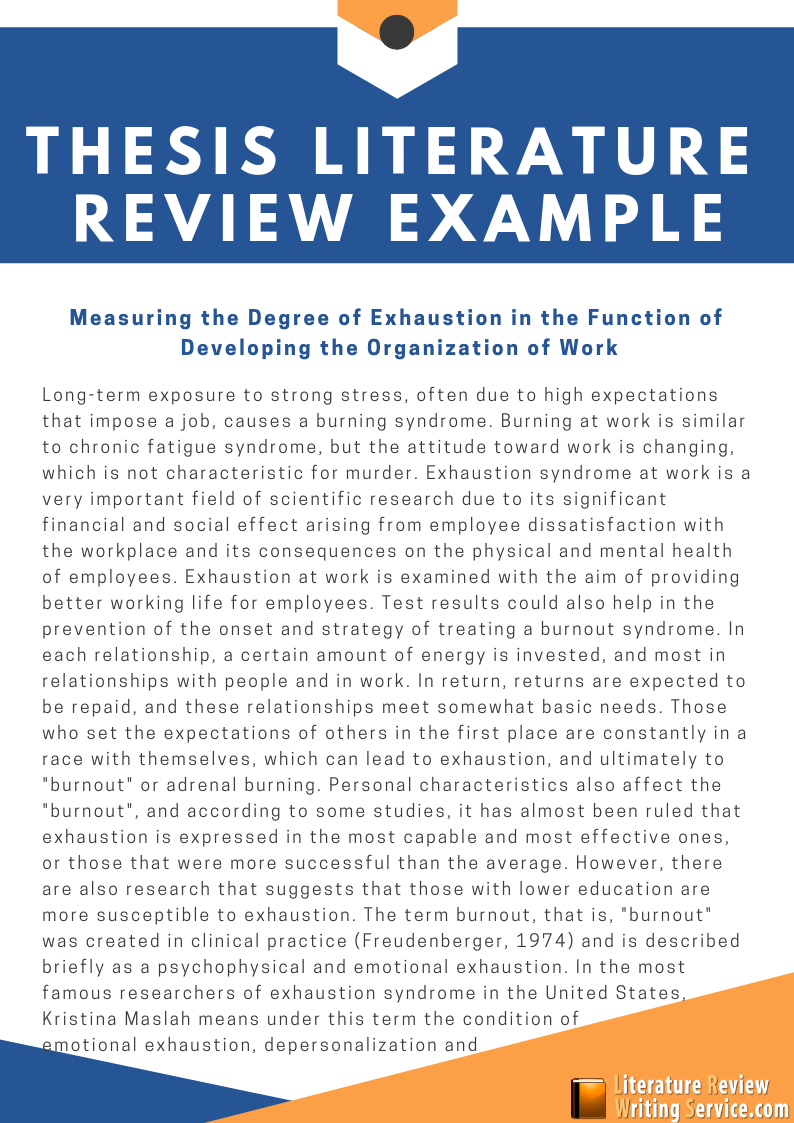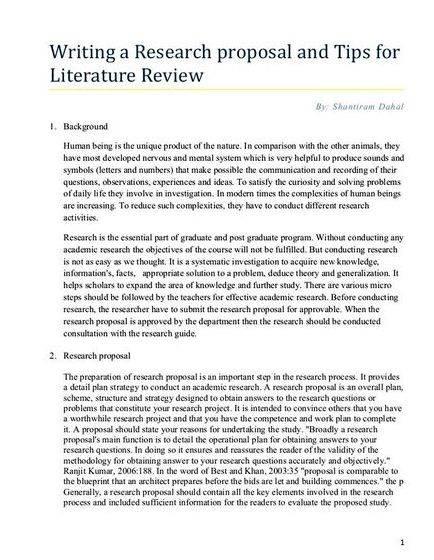
Work out your central argument, then stick to it
your thesis goes on to discuss. It is often useful to write two versions of the literature review – one at the beginning of your studies, and a revised version at the end. Initially, you may find it helpful to write a draft literature review as you begin to read around your topic in more detail and get a sense of the field. When you return to · The length of a PhD literature review varies greatly by subject. In Arts, Humanities and Social Sciences the review will typically be around 5, words long, while STEM literature reviews will usually be closer to 10, words long. In any case, you should consult with your supervisor on the optimum length for your own literature review We assist researchers in designing their review of literature in such a manner that their studies are capable of gaining significant amount of validity among the community of researchers. Based on the context and design of the study, we take a bottom-up approach to

What Is A Literature Review
· Specifically, we zone in on three strategies you can use to make writing it easier and less stressful. 1. Work out you central argument and then stick to it. 2. Avoid getting lost in a sea of authors. 3. Write early, and write quickly. We’re not claiming that these are a magic wand to suddenly make your literature review easy We assist researchers in designing their review of literature in such a manner that their studies are capable of gaining significant amount of validity among the community of researchers. Based on the context and design of the study, we take a bottom-up approach to · As you write, you are forced to tackle what might seem like a wide range of literature. You are forced to relate different articles and books to one another and to explain the who, where, what, when and why. But, you need a filter; much of what you read won’t be relevant to the study you are trying to develop or may be of poor quality

What Is the Purpose of a Literature Review?
· Specifically, we zone in on three strategies you can use to make writing it easier and less stressful. 1. Work out you central argument and then stick to it. 2. Avoid getting lost in a sea of authors. 3. Write early, and write quickly. We’re not claiming that these are a magic wand to suddenly make your literature review easy We assist researchers in designing their review of literature in such a manner that their studies are capable of gaining significant amount of validity among the community of researchers. Based on the context and design of the study, we take a bottom-up approach to · As you write, you are forced to tackle what might seem like a wide range of literature. You are forced to relate different articles and books to one another and to explain the who, where, what, when and why. But, you need a filter; much of what you read won’t be relevant to the study you are trying to develop or may be of poor quality

Some Resources
· Specifically, we zone in on three strategies you can use to make writing it easier and less stressful. 1. Work out you central argument and then stick to it. 2. Avoid getting lost in a sea of authors. 3. Write early, and write quickly. We’re not claiming that these are a magic wand to suddenly make your literature review easy · As you write, you are forced to tackle what might seem like a wide range of literature. You are forced to relate different articles and books to one another and to explain the who, where, what, when and why. But, you need a filter; much of what you read won’t be relevant to the study you are trying to develop or may be of poor quality · The length of a PhD literature review varies greatly by subject. In Arts, Humanities and Social Sciences the review will typically be around 5, words long, while STEM literature reviews will usually be closer to 10, words long. In any case, you should consult with your supervisor on the optimum length for your own literature review

Overview of thesis (introduction)
We assist researchers in designing their review of literature in such a manner that their studies are capable of gaining significant amount of validity among the community of researchers. Based on the context and design of the study, we take a bottom-up approach to · The length of a PhD literature review varies greatly by subject. In Arts, Humanities and Social Sciences the review will typically be around 5, words long, while STEM literature reviews will usually be closer to 10, words long. In any case, you should consult with your supervisor on the optimum length for your own literature review · Specifically, we zone in on three strategies you can use to make writing it easier and less stressful. 1. Work out you central argument and then stick to it. 2. Avoid getting lost in a sea of authors. 3. Write early, and write quickly. We’re not claiming that these are a magic wand to suddenly make your literature review easy
No comments:
Post a Comment